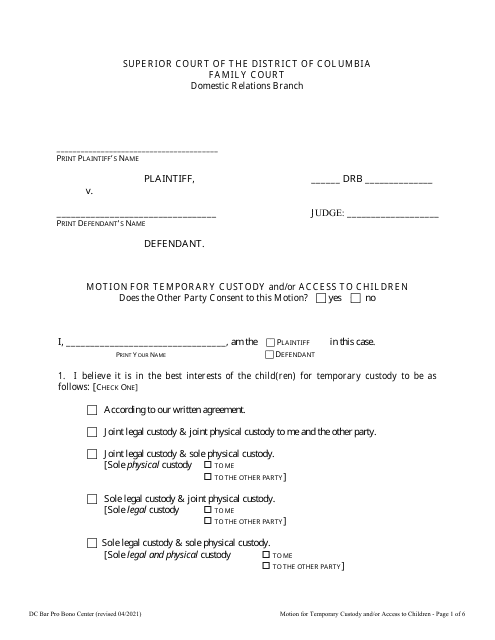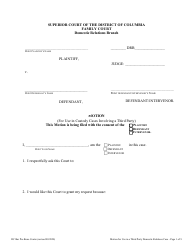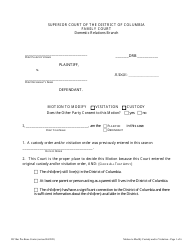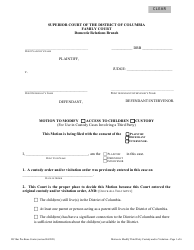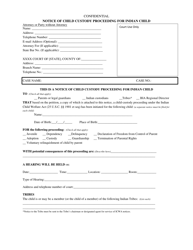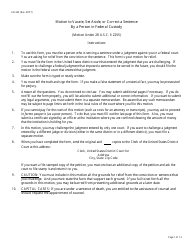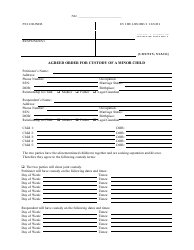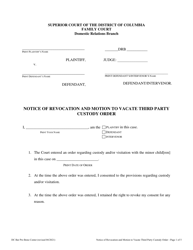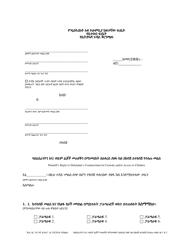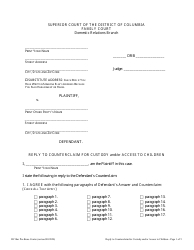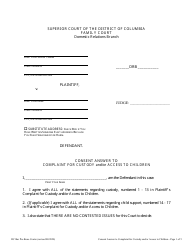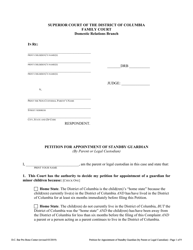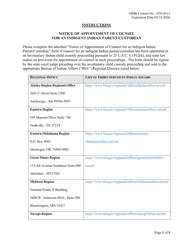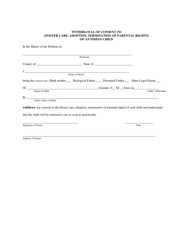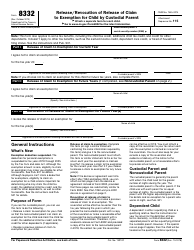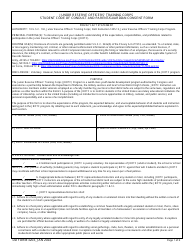Motion for Temporary Custody and / or Access to Children - Washington, D.C.
Motion for Temporary Custody and/or Access to Children is a legal document that was released by the District of Columbia Courts - a government authority operating within Washington, D.C..
FAQ
Q: What is a Motion for Temporary Custody and/or Access to Children?
A: A Motion for Temporary Custody and/or Access to Children is a request made to the court for temporary custody or visitation rights of children in Washington, D.C.
Q: Who can file a Motion for Temporary Custody and/or Access to Children?
A: Any individual who has a legitimate interest in the custody or visitation of children can file a Motion for Temporary Custody and/or Access to Children in Washington, D.C.
Q: What is the purpose of a Motion for Temporary Custody and/or Access to Children?
A: The purpose of a Motion for Temporary Custody and/or Access to Children is to seek temporary custody or visitation rights while the permanent custody arrangement is being decided by the court.
Q: How do I file a Motion for Temporary Custody and/or Access to Children in Washington, D.C.?
A: To file a Motion for Temporary Custody and/or Access to Children in Washington, D.C., you need to prepare the necessary forms and file them with the appropriate court, paying any required filing fees.
Q: What factors does the court consider when deciding a Motion for Temporary Custody and/or Access to Children?
A: The court considers factors such as the best interests of the child, the child's relationship with each parent, and the ability of each parent to care for the child when deciding a Motion for Temporary Custody and/or Access to Children.
Q: Can I modify or terminate a temporary custody or visitation order granted through a Motion for Temporary Custody and/or Access to Children?
A: Yes, you can file a motion to modify or terminate a temporary custody or visitation order if there has been a significant change in circumstances since the order was issued.
Form Details:
- Released on April 1, 2021;
- The latest edition currently provided by the District of Columbia Courts;
- Ready to use and print;
- Easy to customize;
- Compatible with most PDF-viewing applications;
- Fill out the form in our online filing application.
Download a fillable version of the form by clicking the link below or browse more documents and templates provided by the District of Columbia Courts.
